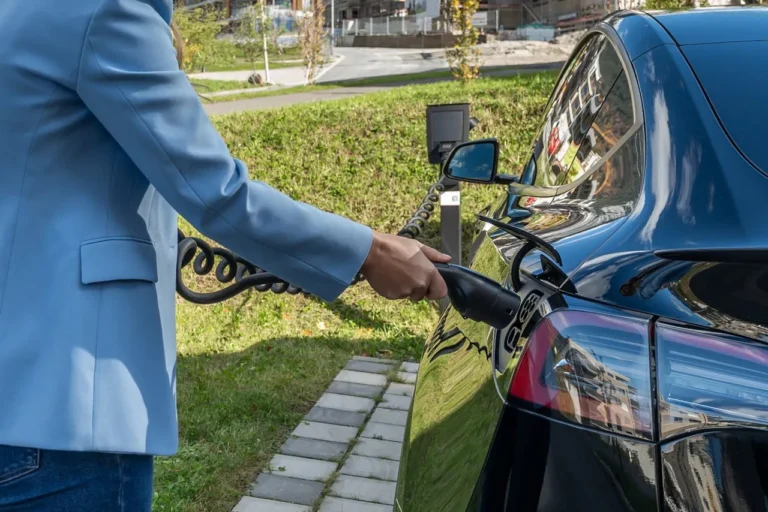
GWM Reinforces Commitment to Powertrain Diversity with Focus on Clean Diesel Innovation for Off-Roading
As global momentum continues to build around new energy vehicles (NEVs), many automakers are racing to electrify their lineups. Yet, amid the rise of battery electric and hybrid powertrains, diesel technology still holds a strong and indispensable position—particularly in markets and use cases where durability, torque, and extended range are non-negotiable. Great Wall Motor (GWM), a leading force in the intelligent mobility space, has reaffirmed its commitment to a multi-energy strategy by investing further in clean diesel advancements tailored for off-road performance and real-world versatility.
At the recent GWM Thailand Diesel Day event, the company demonstrated its deepening focus on optimizing powertrains for modern expectations. From fuel efficiency and environmental compliance to refined drivability and robust off-road capability, GWM made a compelling case for why remains relevant—especially in scenarios where sheer power, endurance, and rugged performance are essential.
The Evolution of Diesel: From Utility to Refinement
Historically, diesel engines have been known for their raw strength, with high torque at low RPMs making them ideal for hauling, towing, and navigating difficult terrains. However, they were also associated with certain compromises—namely, higher noise levels, rough vibrations, and emissions concerns. Today, those trade-offs are rapidly diminishing thanks to the evolution of engine technologies, acoustic insulation, and emissions control systems.
GWM has emerged as a leading innovator in this space, successfully addressing legacy challenges while pushing diesel technology into a new era of refinement. The company’s TANK 300 Diesel, now available in the Thai market, exemplifies this transformation.
TANK 300 Diesel: A Modern Powerhouse Built for Demanding Conditions
The TANK 300 Diesel is more than just an off-road SUV—it is a statement of how can be elevated to meet modern consumer expectations. Powered by a 2.4-liter turbocharged engine, the vehicle produces an impressive 480N·m of torque at just 1,500 RPM, providing the kind of immediate low-end grunt necessary for crawling over rocks, traversing muddy trails, or climbing steep inclines with confidence.
Yet, what truly sets this SUV apart is not just the power—it’s how that power is delivered. Extensive engineering work has gone into reducing NVH (Noise, Vibration, and Harshness) levels, an area where engines traditionally lag behind gasoline counterparts. GWM has implemented more than 200 NVH optimizations, resulting in a cabin experience that feels quiet and composed. In fact, idle noise has been brought down to just 65 decibels, a level comparable to many modern gasoline-powered vehicles.
This refinement is critical in today’s automotive landscape, where consumers demand both capability and comfort. As one reviewer in Thailand observed, “It drives like a gasoline SUV—quiet and refined—until you need the torque. Then, it just powers through.” That seamless duality makes the TANK 300 a compelling option for both city commuters and outdoor adventurers alike.
Long-Range Performance with Lower Environmental Impact
Another standout feature of the TANK 300 Diesel is its impressive fuel efficiency and driving range. Thanks to GWM’s advanced combustion system, which includes innovations such as columnar combustion chambers and dual tangential air ducts, the engine achieves fuel consumption figures of less than 7.3 liters per 100 kilometers. This efficiency translates to a potential driving range of up to 1,200 kilometers on a single tank, making it an ideal vehicle for long-distance travel where fuel stations may be few and far between.
From a sustainability perspective, this level of efficiency represents a meaningful step forward. While diesel emissions remain a topic of scrutiny in many regions, cleaner combustion processes, particulate filters, and optimized fuel delivery systems are steadily transforming into a more environmentally responsible option—especially in places where electrification infrastructure is not yet fully developed.
Supporting Powertrain Diversity with Real-World Solutions
GWM’s innovations are not happening in isolation. They are part of the company’s broader commitment to its “All Scenarios, All Powertrains, All Users” strategy. This holistic philosophy recognizes that there is no one-size-fits-all powertrain solution for the global mobility market. Different regions, customer needs, and use cases require tailored approaches—from plug-in hybrids and battery-electric vehicles to high-performance gasoline models and, indeed, clean diesel.
For GWM, the goal is to provide powertrain diversity that aligns with real-world demands rather than rigid ideological shifts. The TANK 300 embodies that mission by showing that traditional technologies can be reimagined and enhanced to deliver modern relevance. Whether it’s a long-haul expedition across rough terrain or daily commuting in urban environments, the vehicle proves that clean diesel still has a significant role to play.
Thailand as a Launchpad for Diesel Innovation
Thailand, with its strong SUV and pickup culture and diverse terrain, represents an ideal testbed for showcasing diesel advancements. Consumers in this market are well-acquainted with the benefits of diesel—particularly in rural areas and for long-distance travel. The strong response to the TANK 300 Diesel in Thailand suggests that GWM’s approach is resonating with both traditionalists and new buyers alike.
This regional focus also reflects GWM’s broader international ambitions. By tailoring products to suit local preferences while upholding global standards of quality and innovation, the brand is strategically positioning itself as a flexible, user-centric automaker capable of competing across continents.
Beyond Product: A User-Centric Innovation Mindset
More than just launching a new model, GWM is showcasing an innovation philosophy grounded in user needs. Every engineering enhancement—from combustion optimization and NVH reduction to fuel efficiency and off-road calibration—was designed with end-user experience in mind. This approach reinforces GWM’s identity as a brand that listens to its customers and responds with thoughtful, practical innovation.
The success of the TANK 300 Diesel, therefore, is not just about performance metrics—it’s about redefining what diesel vehicles can be in the modern age. It’s about offering consumers more power without the typical trade-offs. It’s about making off-road adventures more accessible, more comfortable, and more sustainable. And ultimately, it’s about ensuring that every driver—no matter where they are or what terrain they face—has a powertrain solution that fits their lifestyle.
As the automotive industry continues its transition toward electrification and decarbonization, GWM’s investment in clean diesel technology serves as a timely reminder that innovation doesn’t always mean abandonment of existing platforms. Instead, it can mean reimagining and refining legacy technologies to serve present and future needs more effectively.
In a world of polarizing choices, GWM is embracing complexity—supporting a diverse energy portfolio that includes NEVs, hybrids, gasoline, hydrogen, and diesel. The TANK 300 Diesel is just one example of how this multi-pathway strategy can deliver results that are technically sophisticated, environmentally mindful, and above all, user-focused.
For drivers in Thailand and beyond, the message is clear: diesel isn’t dead—it’s evolving. And with GWM leading the way, the future of diesel looks cleaner, quieter, and more capable than ever before.







